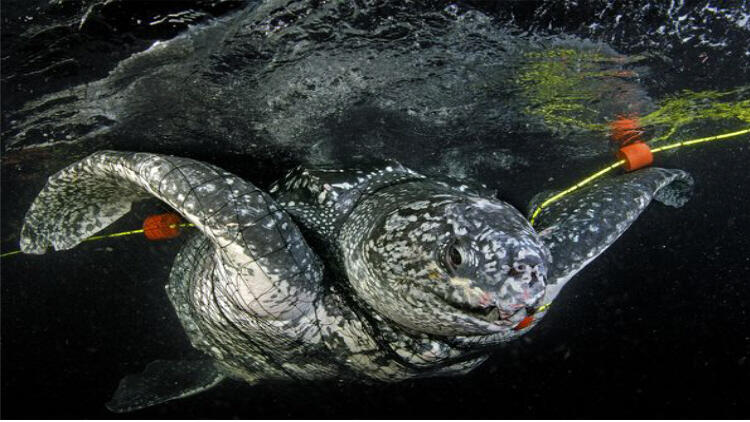Illegal wildlife trafficking is a multibillion-dollar-a-year business with ties to organized crime and terrorism. In an effort to combat this threat to wildlife, the United Nations General Assembly declared March 3 World Wildlife Day. This year’s observance highlights the need to “get serious about wildlife crime.” Countries such as the U.S. and the U.K. have taken steps to beef up laws combating illegal wildlife trafficking and expanding awareness of the issue. The Indonesian Council of Ulama, the country’s top Muslim clerical body, even declared a fatwa against wildlife trafficking last March. (See “Opinion: End Illegal Wildlife Trafficking on World Wildlife Day.”) But the appetite for products or “cures” made from elephant tusks, rhino horns, or bear bile keeps rising, leaving Earth’s wildlife to bear the brunt of our demands. A 2014 study found that poachers killed 100,000 elephants in Africa over three years. And according to figures cited by the United Nations, roughly 1,200 rhinos were taken by poachers in South Africa in 2014, while 30 percent of the global timber trade is likely illegal. Animals such as leatherback turtles (above) are facing other threats—like getting entangled in fishing gear or changing climates—in addition to being hunted by traffickers for their eggs or shells.
Tiger Wine
A Bengal tiger trips a camera trap in India’s Kaziranga National Park. The country is home to most of the world’s remaining tigers, with the Bengal population—classified as endangered on the IUCN Red List—hovering around 2,200 individuals. Poachers sell the animals for use in traditional medicines, including a tiger bone wine believed to increase vigor and strength.
Tasty Tuna
The Atlantic bluefin tuna has the misfortune of being considered tasty by much of the world. As a result, the delicious fish is being taken out of the ocean in numbers that defy scientific recommendations aimed at sustainable population numbers. Some of that is due to illegal fishing operations that fudge how many they catch.
Pangolin Poaching
Called “the most trafficked mammal you’ve never heard of,” pangolins are found throughout Eurasia and Africa. These awkward-looking animals are covered in scales made of keratin—the same material our fingernails are made of—rather than fur or hair, like most other mammals. Poachers take them for their meat, which is considered a delicacy. Their scales and blood are used in traditional medicines.
It’s unclear just how many of these cat-size animals are left in the wild, but estimates peg the number trafficked at around 10,000 individuals each year.
Mortal Combat
Sri Lankan bull elephants lock trunks in a play fight in Udawalawe National Park. Poaching these enormous beasts for their ivory is now carried out by organized teams that can devastate entire populations. Famous raids in 2006 and 2012 saw hundreds of elephants killed with rocket-propelled grenades and AK-47s.
Flying High
Andean condors—such as this one riding wind currents in Patagonia, Chile—are in trouble because many of the animals they eat, such as mountain lions, are persecuted. Fears about these condors eating livestock have also made the enormous carrion birds the target of eradication efforts.
Baby Bump
A right whale calf bumps its mother in an image taken by National Geographic photographer Brian Skerry.
Although these rarest of the large whales are no longer hunted in commercial fisheries, entanglements with fishing gear and ship strikes are taking their toll. The IUCN Red List still considers the right whale an endangered species.
Bear Bile
A sedated Asiatic bear is sprawled on the floor while bile is pumped from its gall bladder. Commercial bear farms were set up in China and Vietnam in an attempt to reduce the pressure on wild bears, but to no avail, partly because these farms were initially stocked with wild animals. Demand for bear bile, along with habitat destruction, are the main threats to Asiatic bear populations.
(National Geographic)


















